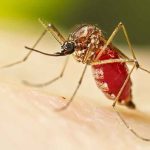Dr N. Munal Meitei,
Environmentalist, email – nmunall@yahoo.in

World Environmental Health Day is observed on 26 September since 2011 with this year’s theme, “Environmental Health: Creating Resilient Communities through Disaster Risk Reduction and Climate Change Mitigation and Adaptation.” The day advocates not just about safeguarding ecological health but also realizing the effect as well as the relation that environmental health has on the health of humans and other living beings and also about taking tangible actions to protect and preserve the environment.
World Environment Health Day and World Environment Day are two different global events to raise awareness and take action to protect our planet and health. World Environment Health Day is focused on the relationship between the environment and human health, while World Environment Day is focused on environmental issues in general.
As a society, we are responsible for the ecosystem that has sustained all forms of life on this planet and the healthier the ecosystem is, the healthier and happier is the living beings. The restoration of ecosystem to its healthier past as well as halting and reversing the degradation in every field can help to end poverty, combat climate change and prevent extinctions.
The well-being of people is intricately linked to the quality of our surroundings. A safe and protected environment with clean air, safe drinking water, hygiene and ecological diversity support humans living in a protected environment. Hence, it is important to ensure the safety of environmental health, which will ensure the safety of human health in the long run.
The chemical, physical and cultural environment of a specific region is known as its environmental health. According to WHO, healthier environments can be one of the most significant reasons behind preventing almost one-quarter of the global burden of diseases. Clean air, climate cycle, adequate drinking water, sanitation and hygiene, safe use of chemicals, sound agricultural practices and a preserved nature are all the best practices for a healthy environment leading to sound public health.
Human behavior lies at the root of both conservation and environmental damage. Rapid population growth and economic growth are threats to environment and natural habitats. Fossil fuels is driving the climate crisis, taking away our right to breathe clean air and with indoor and outdoor air pollution a life is claimed for every 5 seconds.
Plastic is the biggest challenge for the present world. Land microplastic contamination is estimated to be 23 times higher than marine microplastic pollution. But, in 2019, a young dead whale was found with 40 kilos of plastic in its stomach. Once a turtle had 14 plastic items in it’s digestive tract. Nine in 10 sea birds are found to have ingested plastic waste. In India, 95% of urban stray cattle suffer from various ailments due to hazardous material inside their abdomen, out of which, 90% are plastic bags. All these facts are the tip of the iceberg, and what about the terrestrial lives?
Environmental health is a human right. Climate change and disaster risks are fundamental threats to sustainable development. Environmental health is a core discipline and a holistic approach is needed to reduce disaster risks and climate change. Besides combating climate change by reduction in the use of fossil fuels, we must also strengthen our initiatives in terms of mitigation and adaption.
India finds itself in the ranks of those liberal nations that are increasingly taking charge to solve the environmental degradation and climate change. India’s post-independence rapid economic growth has lifted millions out of poverty but is putting a heavy pressure on its ecosystems. Increasing patterns of unsustainable management to feed the 1.43 billion people have impacted all forms of environmental challenges posing risks to human health.
The Health Ministry has launched the National Action Plan for Climate Change and Human Health, to monitor the effects of environment change on public health and strengthen preparedness and response at the national, state and district level.
Manipur, a dream land with pristine structures, stolid and regal is known for its rich and green landscapes. But now, the state is facing with various environmental health problems. Overexploitation of forests and wildlife, rapid population growth, unplanned land management, urbanization, lack of environmental awareness, poverty, poppy cultivation and Jhuming are some of anti-environment activities.
The state needs to stop any forms of deforestation now. Proper environmental impact assessment should be carried out before implementation of any projects attracting the FCA-1980. State should take more control over the forests on 90% hill areas. Land and soil degradation may be regularly monitored and checked. Proper urban planning should be developed along with proper waste management system. All the degraded/deforested areas should afforest at the earliest.
If we do not take care of our environment, we all are in danger. It is the time we put environmental concerns at the centre of our developmental agenda. The healthier our environment is the hale and hearty, our health becomes. Hence, it is our prime responsibility to upkeep our environmental health.













